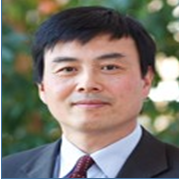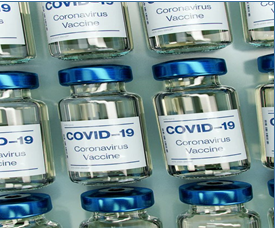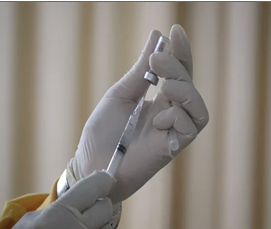On Saturday, 6 February 2021, the staff and students of PHBS-UK had the pleasure of having Professor Houyuan Jiang from the Judge Business School, University of Cambridge to give us a talk on his very current research and relevant research on Systems Dynamics Modelling for Covid-19 and Healthcare Supply Chain Management.

Prof Jiang is University Reader (Associate Professor) in Management Science at Judge Business School, University of Cambridge. He teaches courses related to business analytics, quantitative techniques, mathematical modelling, and operations management, to undergraduates, postgraduates, and business executives. His current research interests include healthcare operations management, supply chain management, and revenue management, for which he builds mathematical models, uncovers managerial insights, and develops computational methods. Previously, Prof Jiang was a Senior Research Scientist at the Commonwealth Scientific & Industrial Research Organizations (CSIRO) in Australia, where he undertook research in combinatorial optimization and consultancy in applied operations research and management science. On top of his academic commitments, Prof Jiang is also a member of the Institute of Operations Research and Management Science (INFORMS). He has published widely in renowned journals such as Management Science, Manufacturing and Service Operations Management, Operations Research, Production and Operations Management, and several leading optimization journals, to name a few. In addition, he was an editorial board member of Computational Management Science, International Journal of Revenue Management, Numerical Algebra, Control and Optimization, Operations Research Letters, and Production and Operations Management.

In this first part of this webinar, Prof Jiang focused on the system dynamics modelling for projecting medium-term capacity requirements under different scenarios. He described the real-time participatory modeling work that his team of academics, public health officials, and clinical decision- makers has been undertaking to support the regional efforts to tackle COVID-19 in the East of England.

Since March 2020, they have been studying several research/exam questions that have allowed them to address the pandemic's current and near-future rapidly evolving epidemiological state, as well as the bed capacity demand in the short (a few weeks) and medium (several months) term. In addition, frequent data input from and consultations with Prof Jiang and his research team’s public health and clinical partners allowed their academic team to apply dynamic data-driven approaches using time series modeling, Bayesian estimation, and system dynamics modeling.
Prof Jiang and his team were thus able to obtain a broad view of the evolving situation. Prof Jiang’s academic team would also present the model outcomes and insights during weekly joint meetings among public health services, national health services, and academics to support COVID-19 planning activities in the East of England, contributing to the discussion of the COVID-19 response and issues beyond immediate COVID-19 planning.
In the first part of the webinar, through the research presented, Prof Jiang provided an example of how the general healthcare supply chain management - an extension of the traditional supply chain management - works. To build on this, in the second part of the webinar, Prof Jiang noted that the complexity in managing healthcare supply chains offers numerous opportunities for important and impactful research avenues in coordination and integration (e.g., new care models), mass customization (e.g., the rise in precision medicine), and incentives (e.g., emerging reimbursement schemes).

In particular, Prof Jiang provided the audience with a primer on supply chain thinking in healthcare, with a focus on healthcare delivery, by following a framework that is customer focused, systems based, and strategically orientated and that simultaneously considers clinical, operational, and financial dimensions. After identifying unique challenges and opportunities in healthcare, Prof Jiang provided an in-depth understanding of how concepts and strategies in supply chain management can be applied and tailored to healthcare.

Prof Jiang concluded the second half of the webinar by providing the audience with this takeaway: through the usage of supply chain thinking, healthcare organizations can decrease costs and improve the quality of care by uncovering, quantifying, and addressing inefficiencies.
It was a very in-depth and through webinar on the intricacies of healthcare supply chain management as well as a very cutting-edge and relevant presentation on how Prof Jiang and his team utilized systems dynamics modelling for Covid-19. We have learned a lot from Prof Jiang and it is indeed our honor to have someone as distinguished as Prof Jiang to discuss his research with our staff and students. The end of the webinar sees our Head of Campus, Prof Guy Liu extending an open invitation to Prof Jiang to visit our UK Campus on Boars Hill and give our staff and students a guest lecture once the pandemic is over. We look forward to learning more from Prof Jiang in the future!




